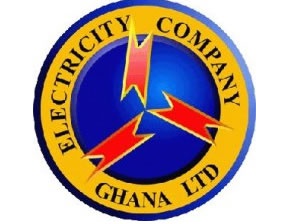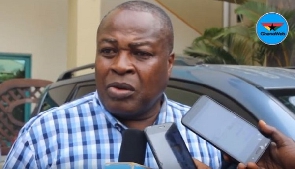The Electricity Company of Ghana (ECG) Limited is implementing a Distribution System Loss Reduction Project intended to trim the company’s distribution system losses from the current 20 per cent to 10 per cent.
The five-year project, apart from managing system losses, is expected to improve energy efficiency in the power sector.
Dr Nicholas Smart-Yeboah, Director of Customer Services at the ECG, said this on Wednesday in Accra at the opening session of a three-day West African Power Pool (WAPP) Capacity Building Seminar on Control of Technical and Commercial Losses in the West African Power Sector.
It was to brainstorm on ways of empowering the ECG and other utility agencies with the right tools to battle the canker of system losses.
The workshop was organised with support from the United States Agency for International Development.
Dr Smart-Yeboah said the ECG had embarked on the installation of high voltage distribution systems on its network from 11,000 volts to 33,000 volts to prevent pilfering and system tampering.
He said the company had also introduced Automatic Meter Reading (AMR) for its special load tariff customers.
Dr Smart-Yeboah said the AMR system was chiefly designed for ECG’s high power-consuming customers and that 90 per cent of the industrial customers had been covered nationwide.
He said the system provided a 24-hour weekly automatic metering system.
Dr Smart-Yeboah expressed the hope that the workshop would provide the participants the requisite knowledge to develop innovative ways of curtailing the system losses challenges which had “plagued the power sector for so long”.
Mr Amadou Diallo, Secretary General of WAPP, in a speech read on his behalf, said most utility agencies had double-digit technical and non-technical loss values that were far above industry standards, adding it continued to weigh heavily on financial performance and tariff levels.
He said ignorance of customers on prudent electricity usage culminated in unnecessary wastage and high bills that could have been avoided.
Mr Diallo said: “It is therefore evident that strategies aimed at augmenting quality of electricity supplies include measures that aim to address these challenges”.
He noted that proactive actions such as public sensitization and education campaigns, promotion of energy-friendly appliances, and the adoption of pre-payment metering systems were just some of the pursuits that had yielded concrete positive results with some of the WAPP member utilities.
Mr Diallo expressed the hope that the workshop would provide the opportunity for stronger inter-utility relationships and to exchange ideas on best practices.
Click to view details



Business News of Wednesday, 12 December 2012
Source: GNA
ECG initiates project to cut down losses

















